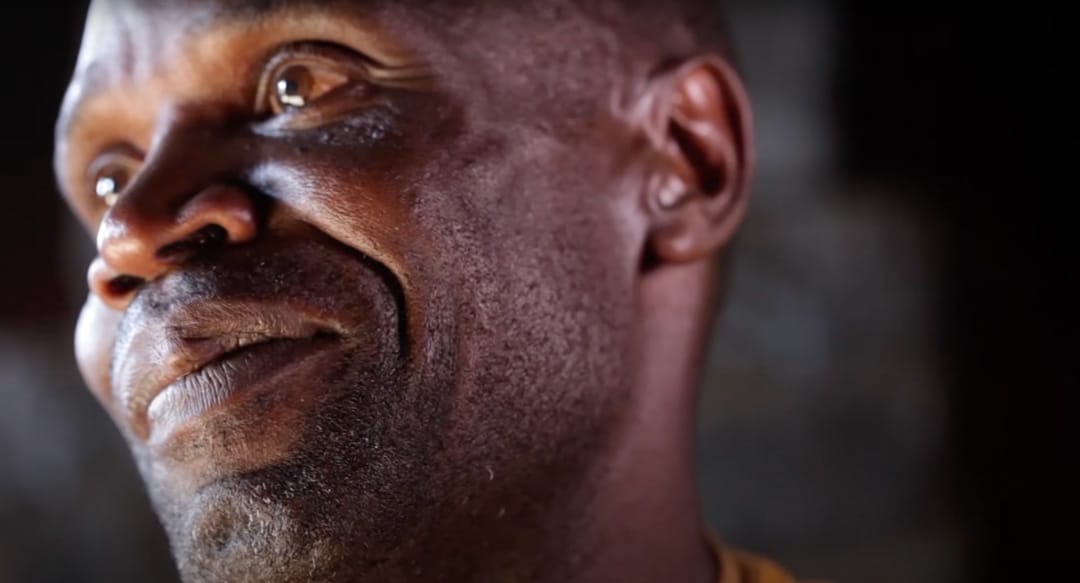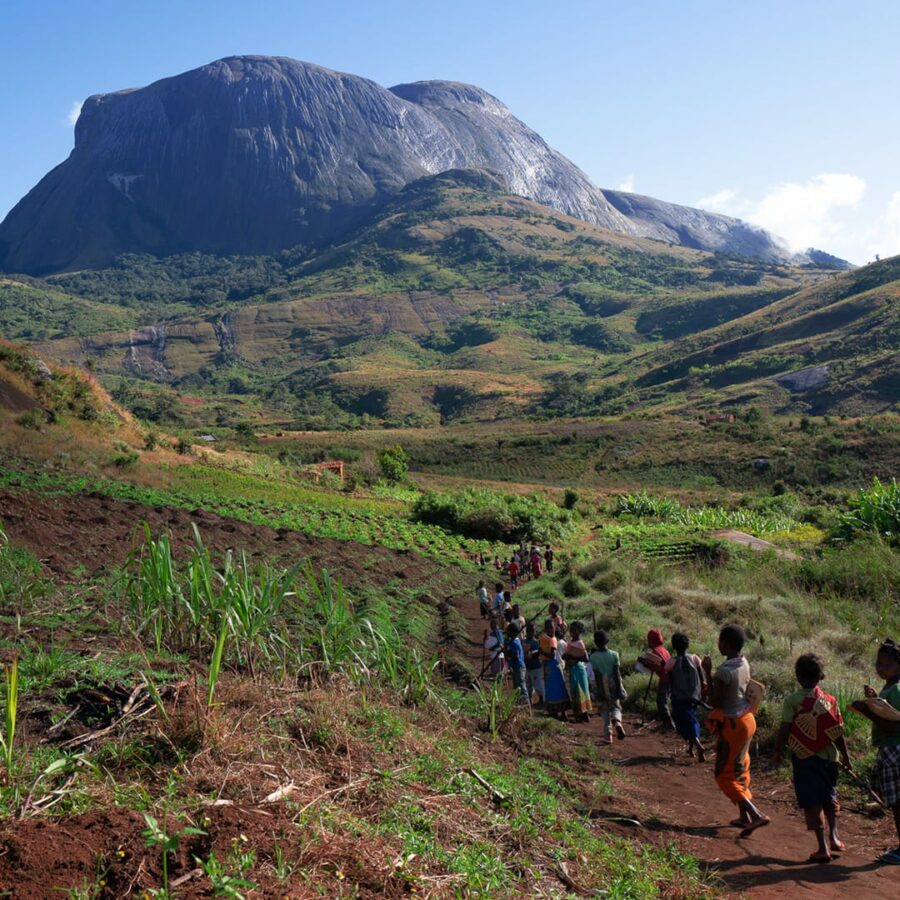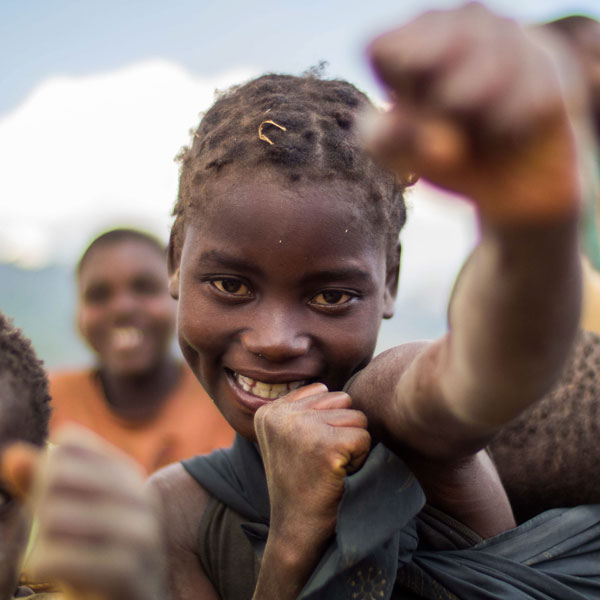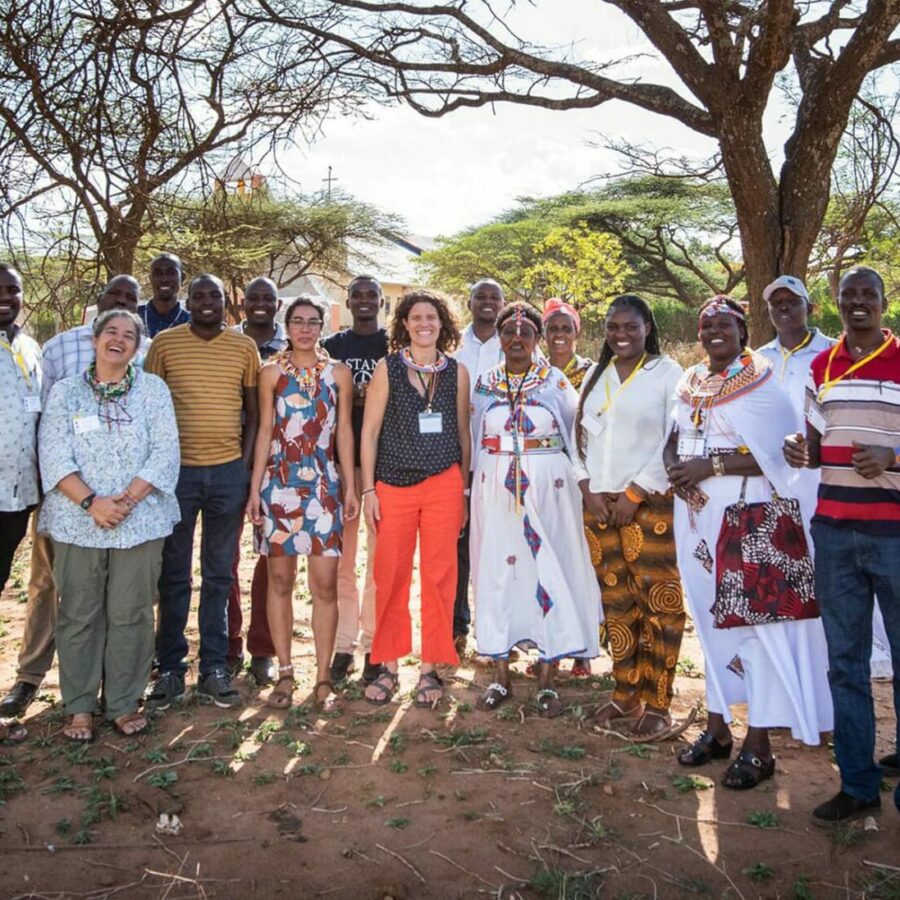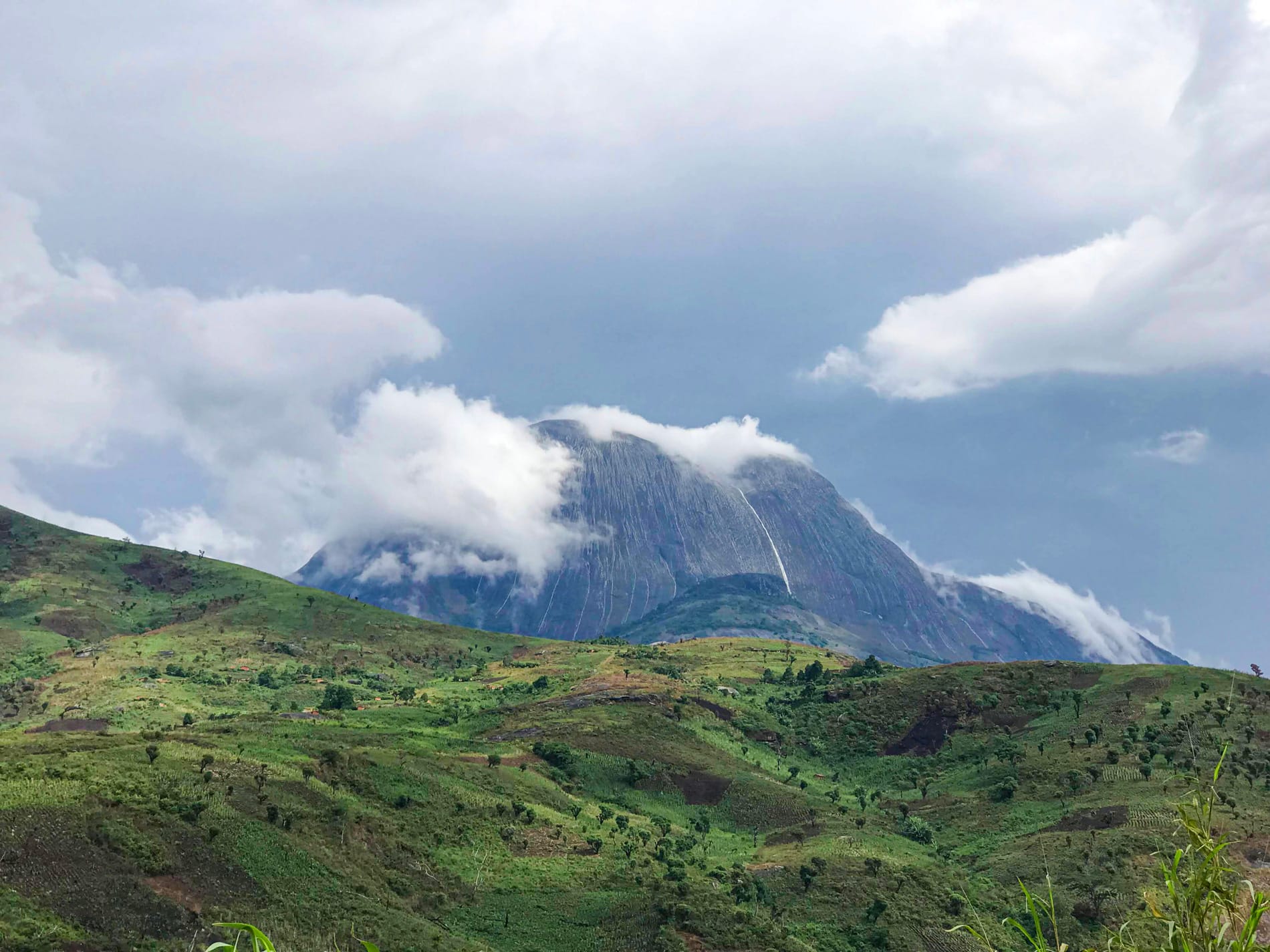
Story
Legado began in the
mountains of Mozambique.
In 2010, a friend sent professional climber and social entrepreneur Majka Burhardt a photo of a granite rock face in northern Mozambique. Majka’s curiosity about what was behind and beyond that rock face ultimately led to a May 2014 expedition with a team of biologists, climbers, conservation workers, local community activists, and filmmakers who collaborated to explore Mozambique’s second highest peak, Mount Namuli.
The team spent a month rock climbing to access previously unexplored habitats alongside hosting forums with Namuli’s community members to understand their conservation priorities for their mountain ecosystem. The 18-person expedition discovered species new to science, established a sweeping climbing route on Namuli’s 1,200-foot southwest face, and launched the first-ever collaboration with Namuli community members to preserve one of the world’s Key Biodiversity Areas.
But this was not enough.
Mount Namuli is home to the Lomwe—Indigenous peoples that have inhabited the area around Mount Namuli for thousands of years. The Lomwe people have played a powerful role influencing the cultural, social, and economic reality of millions of people in Mozambique.
In the past decades, unsustainable natural resource use and agricultural practices have threatened the mountain’s unique biodiversity. This in turn posed a significant threat to the long-term well-being of the local communities by putting traditional ways of living at risk and pushing more people into poverty.
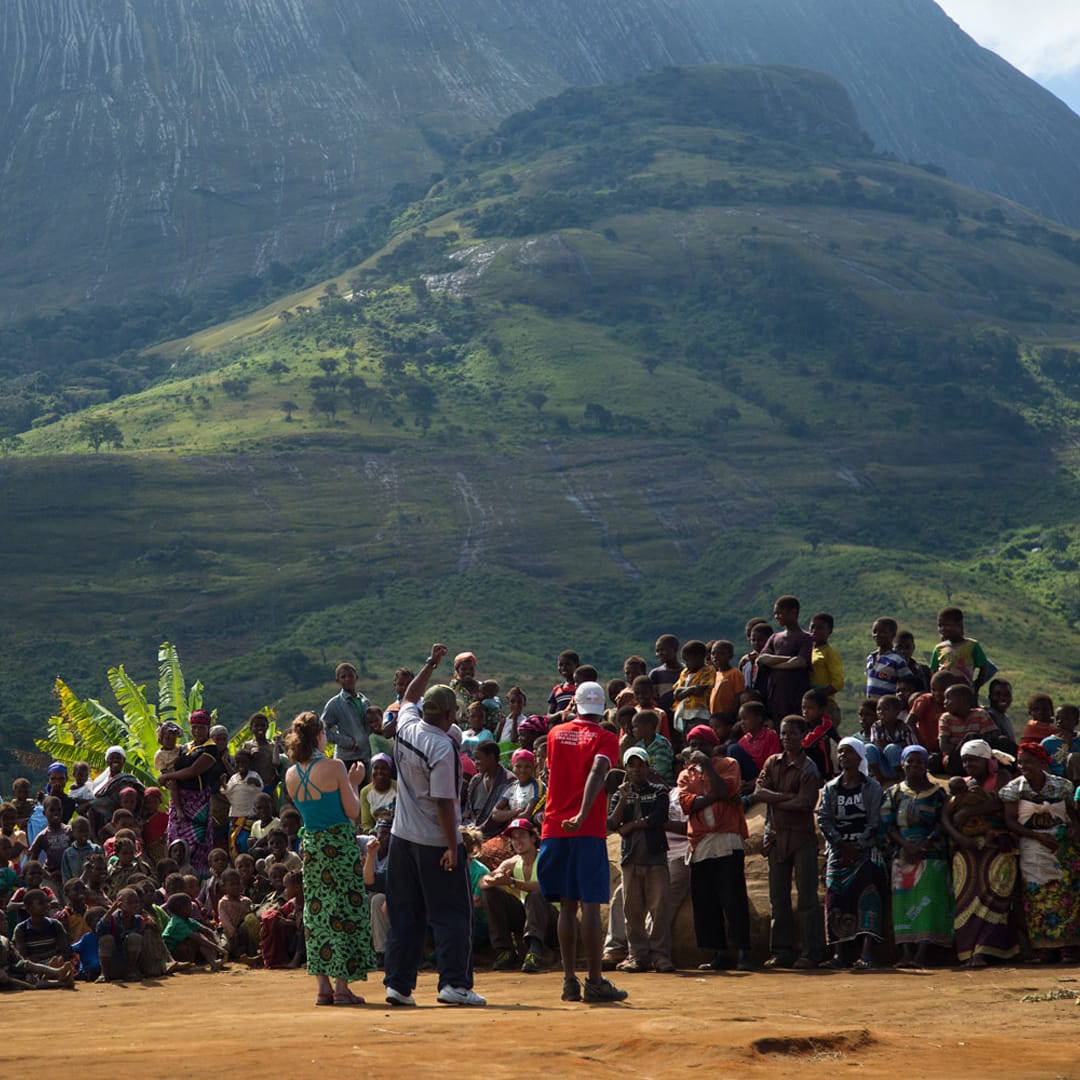
This realization
did not come from us.
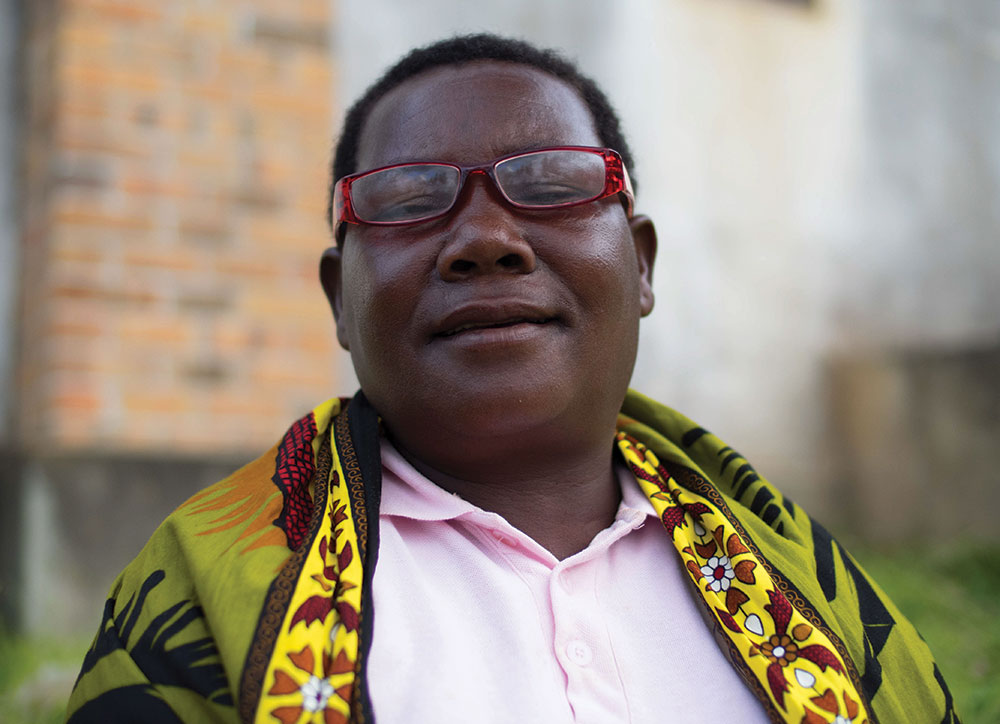
Today, working in partnership with Legado, Indigenous people around the world work together to articulate their visions for the future. In doing so, they define and create legacies for both themselves and for their communities that go beyond conservation to include every aspect of well-being, from health, to education, to livelihoods and more. When every person in the community—particularly those with underrepresented voices, such as women and youth—designs and implements solutions of their choosing, they create sustainable outcomes called Thriving Futures.
Today, Legado works in Kenya, Peru, and Mozambique, and we are expanding our partnerships and program areas yearly. Please join us in activating the power of legacies for Indigenous people around the world to create Thriving Futures. You can make an immediate impact by making a donation—we will send you quarterly updates on how your generosity is helping create Thriving Futures for people and the fragile ecosystems on this planet that is our home.
WATCH NAMULI
— THE FILM
